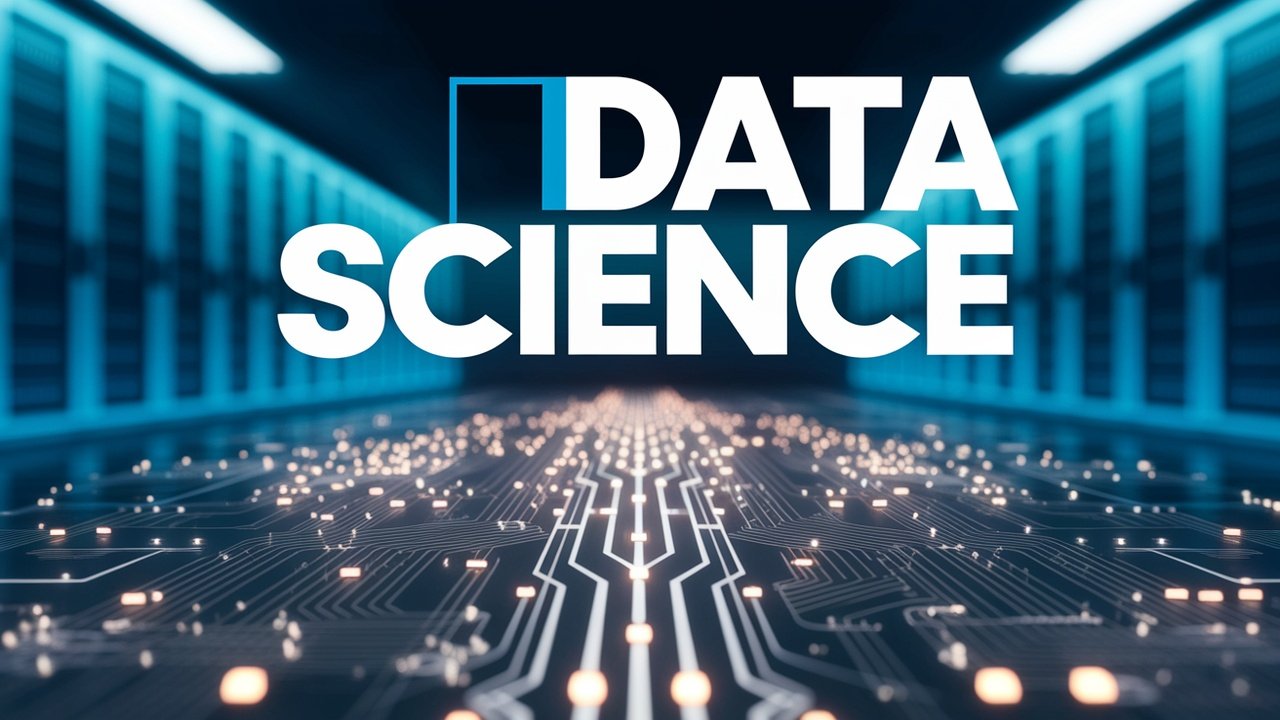Data Science in 2025: Transforming Industries with AI, Big Data, and Machine Learning

Introduction
In the digital era, data has become one of the most valuable assets for businesses, researchers, and governments. The field of Data Science is at the forefront of this revolution, leveraging advanced analytics, artificial intelligence (AI), and machine learning to extract meaningful insights from massive datasets.
As industries increasingly rely on data-driven decision-making, continues to evolve, introducing new methodologies, tools, and applications. In this article, we will explore the fundamentals of data science, its role in modern industries, emerging trends, and the future of this rapidly growing field.
Understanding Data Science
Data Science is an interdisciplinary field that combines statistics, mathematics, computer science, and domain expertise to analyze complex data. It involves several key processes:
- Data Collection: Gathering raw data from various sources such as social media, sensors, business transactions, and scientific research.
- Data Cleaning and Preprocessing: Filtering and organizing data to remove inconsistencies and improve quality.
- Exploratory Data Analysis (EDA): Identifying patterns, correlations, and trends using visualization and statistical techniques.
- Machine Learning and AI: Developing predictive models that help automate decision-making.
- Interpretation and Communication: Presenting findings in a meaningful way through reports, dashboards, and visualizations.
The Role of Data Science in Modern Industries

Data Science has transformed a wide range of industries, leading to increased efficiency, cost reduction, and innovative solutions. Below are some of the most impactful applications:
1. Healthcare and Medicine
- Predictive Analytics: AI-powered models predict disease outbreaks, patient deterioration, and treatment effectiveness.
- Medical Imaging: Deep learning algorithms improve the accuracy of MRI and CT scan analyses.
- Drug Discovery: accelerates pharmaceutical research by analyzing molecular structures and identifying potential treatments.
2. Finance and Banking
- Fraud Detection: Machine learning algorithms identify suspicious transactions and prevent financial fraud.
- Algorithmic Trading: AI-powered trading bots analyze market trends and execute high-frequency trades.
- Risk Assessment: Credit scoring models evaluate loan applicants’ financial stability.
3. Retail and E-Commerce
- Personalized Recommendations: AI-driven product recommendations increase customer engagement and sales.
- Demand Forecasting: Predicting consumer demand helps retailers optimize inventory and reduce waste.
- Sentiment Analysis: Businesses analyze customer feedback to enhance products and services.
4. Manufacturing and Supply Chain
- Predictive Maintenance: Sensors and AI detect potential equipment failures before they occur.
- Optimized Logistics: Data science enhances supply chain efficiency by analyzing transportation and warehouse data.
- Quality Control: Computer vision detects manufacturing defects in real time.
5. Entertainment and Media
- Content Recommendation: Streaming services like Netflix and Spotify use to suggest personalized content.
- Automated Content Generation: AI generates music, news articles, and even movie scripts.
- Audience Analytics: Media companies track viewer engagement to improve marketing strategies.
6. Smart Cities and Public Services
- Traffic Optimization: AI-powered traffic management systems reduce congestion.
- Energy Efficiency: Smart grids analyze electricity consumption to improve efficiency.
- Crime Prediction: Predictive policing models help law enforcement allocate resources effectively.
Emerging Trends in Data Science

As technology evolves, new trends and innovations continue to shape the future of data. Here are some of the most promising developments:
1. Automated Machine Learning (AutoML)
AutoML platforms allow non-experts to build AI models without deep technical knowledge, making science more accessible to businesses of all sizes.
2. Edge AI and Real-Time Analytics
Instead of relying on cloud-based data centers, Edge AI processes data locally on devices such as smartphones, IoT sensors, and autonomous vehicles, enabling real-time decision-making.
3. Explainable AI (XAI)
As AI models become more complex, there is a growing demand for transparency. Explainable AI provides human-readable insights into how AI systems make decisions, improving trust and regulatory compliance.
4. Federated Learning
This privacy-preserving technique enables AI models to be trained on decentralized data sources (e.g., smartphones) without sharing sensitive information.
5. Quantum Computing and Data Science
Quantum computing has the potential to revolutionize data science by solving complex optimization and cryptography problems exponentially faster than classical computers.
6. Synthetic Data Generation
Instead of relying solely on real-world data, AI can generate synthetic datasets to improve model training and testing, reducing bias and enhancing privacy.
The Future of Data Science

Looking ahead, data science will continue to evolve, driven by AI advancements, ethical considerations, and new computing technologies. Some key predictions include:
- AI-Powered Data Science Assistants: Intelligent tools will automate data preprocessing, model selection, and insight generation.
- Stronger Data Privacy Regulations: Governments and organizations will enforce stricter laws to protect consumer data and ensure ethical AI practices.
- Integration with Augmented Reality (AR) and Virtual Reality (VR): Data visualization in immersive environments will enhance decision-making and user experiences.
- Decentralized Data Ecosystems: Blockchain technology may enable secure, transparent, and decentralized data sharing.
Conclusion
Data Science has become an essential component of modern technology, shaping industries and driving innovation. As AI, big data, and machine learning continue to evolve, the potential of data science will only expand. Whether in healthcare, finance, or entertainment, data science is revolutionizing the way we understand and interact with the world. For aspiring data scientists and businesses, staying ahead of emerging trends and adopting cutting-edge techniques will be crucial for success in the data-driven future.






